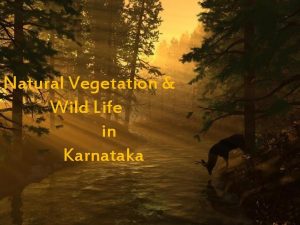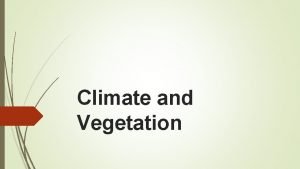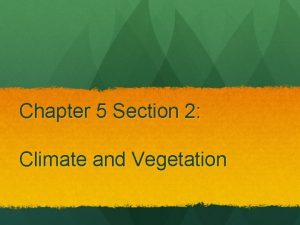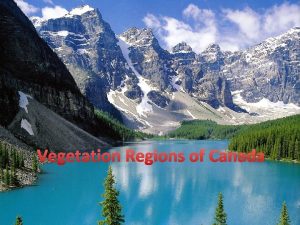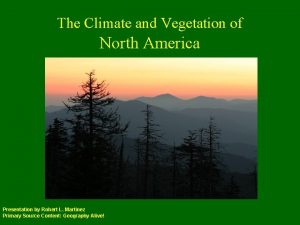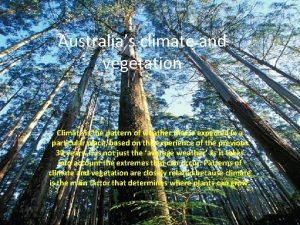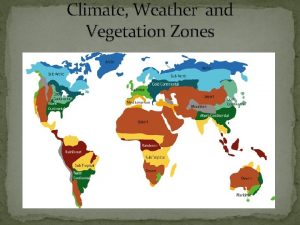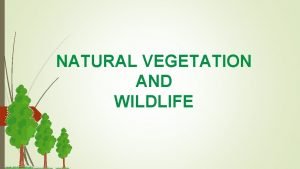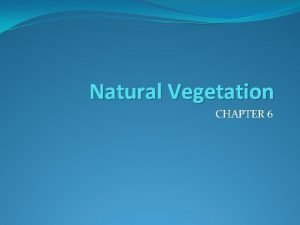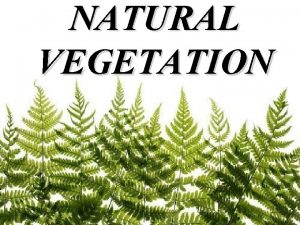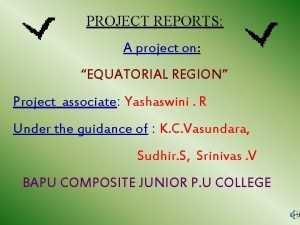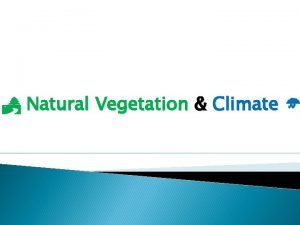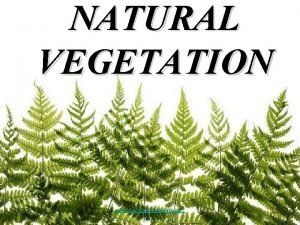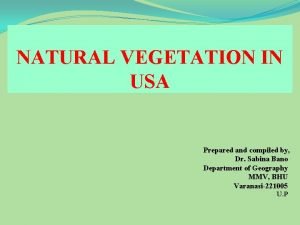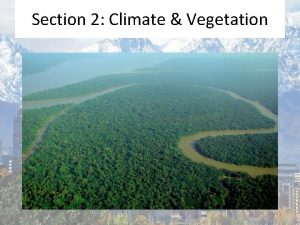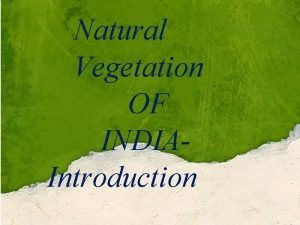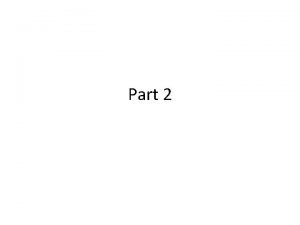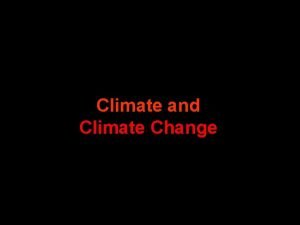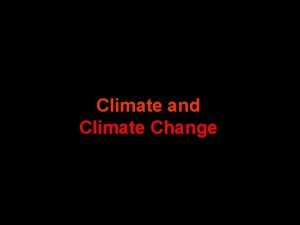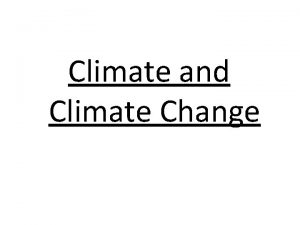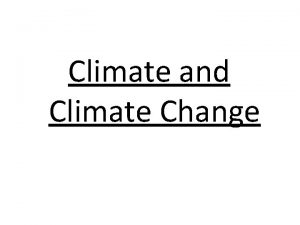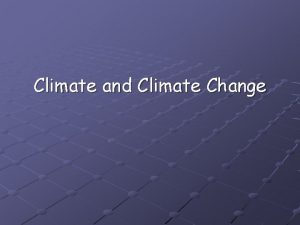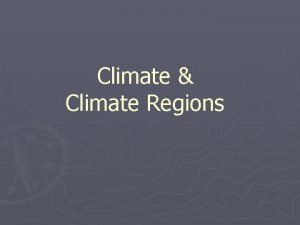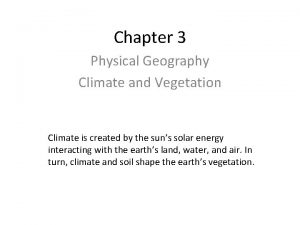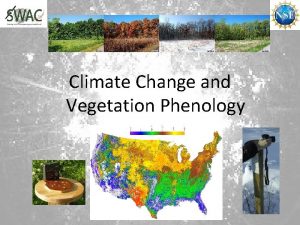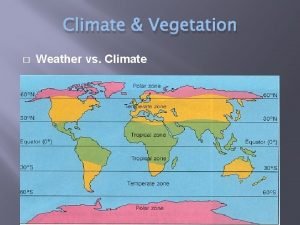Natural Vegetation Climate Natural What is Natural Vegetation

















- Slides: 17

Natural Vegetation & Climate

�Natural What is Natural Vegetation? Vegetation is plant life that hasn’t been planted or changed by humans, it has grown naturally or wildly as nature intended. �Humans however still plant & remove vegetation and so few areas in the world where natural vegetation remains. Irelands natural vegetation was deciduous forest. This has been dramatically altered for agriculture & recreation.

Ireland’s Natural Vegetation Irelands forest cover is believed to be about 8 -10% of the country with less than 1% of this being natural vegetation. � After the last Ice Age, about 10, 000 years ago, Ireland gradually became covered with trees. � The arrival of early farmers heralded the beginning of the steady decline of Ireland's natural woodland cover as they felled trees for timber and cleared the land for agricultural use. � Uses for timber varied from the construction of bog roads, crannógs and dugout canoes, to ship-building and charcoal for smelting.


How Natural Vegetation is Related to Climate Precipitation Heat -Provides moisture for -Needed for plant growth. plants. -Wet Regions may be -Hotter regions usually have covered in thick forest. more lush vegetation than -Moderately wet regions may be cooler regions. covered in natural grasslands. – Few plants will grow in -Dry Regions usually contain temperatures below 4°c. scrub-like vegetation. -Very warm conditions effect the type of plants that grow. Natural Vegetation

Precipitation Different amounts of precipitation affect the type of natural vegetation in an area. Wet regions- will be covered in thick forests Moderately wet regions will have grasslands Dry regions contain shrub like vegetation.

Heat Hotter regions have lush vegetations. Vegetation wont in abundance in temperatures in 4 degrees.


Natural Vegetation & Soil Máistir Ó Míocháin An Tíreolas


Compare the forested area in the background to the cleared land in the foreground. -------------Explain possible reasons for the differing landscapes?



Soil conditions affect Vegetation and Vegetation also affects Soil conditions.


Soil conditions influence vegetation > Soil nourishes vegetation by giving it essential nutrients. These nutrients such as nitrogen and calcium make the soil fertile and a plentiful variety of plants. Without nutrients soil is infertile. > The depth of soil also influences growth. Oak trees need deep soils found in river valleys. Grass and shallow rooted trees can only survive in shallow soil. Shallow soil are common on mountains.

Vegetation Influences Soil Condition Vegetation provides fertile humus which nourishes the soil. Humus is formed from deciduous trees. Coniferous trees give off small plant litter results in no humus. Vegetation can effect leaching by returning nutrients to the surface. Vegetation can protect soil erosion by forming a protective cover the soil. Where natural vegetation is removed soil erosion happens.
 Vegetation types of karnataka
Vegetation types of karnataka Equatorial climate vegetation
Equatorial climate vegetation Chapter 15 section 2 climate and vegetation
Chapter 15 section 2 climate and vegetation What is the vegetation in canada
What is the vegetation in canada Why is the middle east so dry
Why is the middle east so dry Climate and vegetation of north america
Climate and vegetation of north america Australia climate and vegetation
Australia climate and vegetation Climate and vegetation zones
Climate and vegetation zones Climate change 2014 mitigation of climate change
Climate change 2014 mitigation of climate change Forests
Forests Importance of vegetation
Importance of vegetation Importance of natural vegetation
Importance of natural vegetation Equatorial region project
Equatorial region project What is natural vegetation
What is natural vegetation Vegetation map of india
Vegetation map of india North china plain map
North china plain map What is the importance of natural vegetation
What is the importance of natural vegetation Natural vegetation
Natural vegetation
